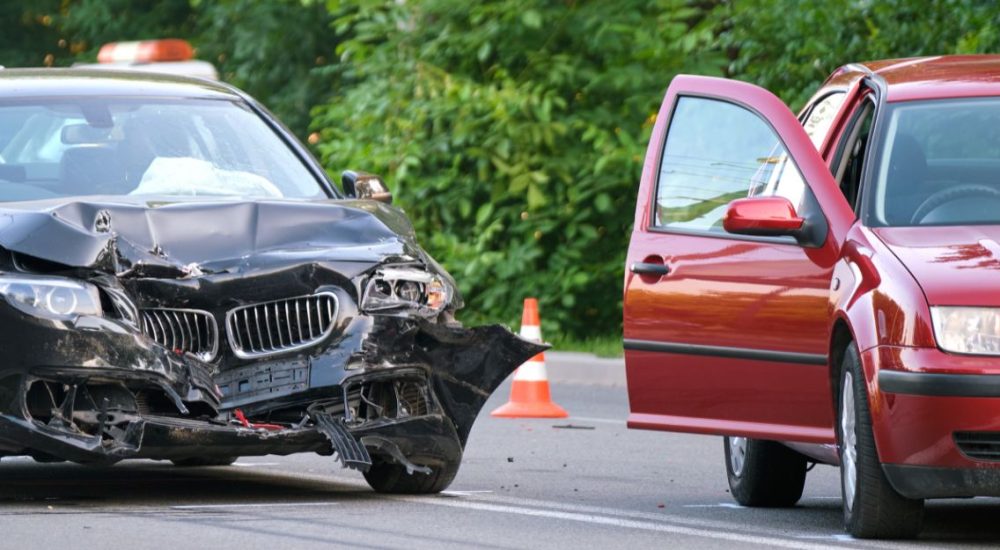Common Types of Car Accidents in Texas
Car accidents happen every day throughout Texas in many different ways, some of which result in catastrophic injuries and expensive economic losses for those involved. It’s vital for every Texas driver to know the biggest risks they face on the road and what to do when they experience an accident. The first steps you take following any collision are important, and having a Houston Car Accident Attorney on your side enables you to approach your recovery process with confidence.
Many government agencies and nongovernment organizations collect accident data from across Texas, regularly publishing reports of accident statistics that can help drivers understand the biggest risks they face on Texas roads. Stevenson & Murray can provide the legal support you need in the aftermath of an accident, helping you gather the evidence needed to prove liability and assisting you in calculating the full scope of damages that you can claim from the at-fault driver.
Most Common Types of Accidents in Texas
The traffic signals and road signs posted throughout Texas exist to allow drivers to anticipate the actions of other drivers. However, not all drivers uphold their responsibility to follow the rules of the road, and it is impossible for any driver to be able to consistently predict the actions of others around them. A few of the most common ways that car accidents happen in Texas include:
- Rear-End Collisions: These accidents can happen virtually anywhere. One driver hits another driver from behind due to inattention, speeding, or a moving violation. While the rear driver is almost always considered at fault for this type of collision, it is possible for the leading driver to absorb liability for the incident if they braked or stopped inappropriately. They may also be at fault if they have broken brake lights that prevent a driver behind them from telling when they are slowing down or stopping.
- Sideswipe Accidents: These collisions can occur whenever drivers pass adjacent lanes of traffic. A driver might change lanes at the wrong time and scrape along the side of another driver’s vehicle. It is also possible for a driver to sideswipe a parked vehicle from a botched turn.
- Head-On Collisions: These crashes happen when one driver hits another driver directly in the front of their vehicle, and they are some of the most dangerous crashes. Head-on collisions are likely to cause both vehicles’ airbags to deploy, and the severity of any resulting damages typically depends on the speed at which the accident occurs.
- T-Bone Accidents: This type of crash involves one vehicle striking another vehicle directly in the side. This is most common when drivers run red lights, fail to stop at stop signs, or perform illegal turns.
These are only a few examples of the ways that car accidents can happen in Texas. While the type of accident can inform the resulting damages, it is more important to discern the cause of an accident if you intend to seek accountability and compensation for your damages from the other driver. Proving fault is an essential first step for any car accident victim in Texas. Once you have proven liability, you can hold the at-fault driver accountable for the damages that they caused.
FAQs
Q: What Is the Most Common Cause of Car Accidents in Texas?
A: According to recent accident statistics from across Texas, speeding remains the top-reported cause of vehicle crashes each year. However, this is closely followed by distracted driving, which is the leading cause of all accidents nationwide. Distracted driving can easily cause serious accidents in a very short time, and speeding can increase the severity of resulting damages.
Q: What Types of Car Accidents Are Most Common in Texas?
A: Rear-end collisions are the most commonly reported accidents throughout Texas each year. These are also the most common accidents throughout the U.S. Rear-end collisions occur when drivers are not paying attention to their surroundings or when they speed, reducing the time and space they have to slow down or stop to avoid colliding with drivers in front of them.
Q: Is Texas a No-Fault State for Car Accidents?
A: Some states follow “no fault” rules for car accidents, requiring drivers to use their own auto insurance to pay for the damages from an accident regardless of who caused the accident. Texas is not a no-fault state, so proving fault for a car accident is an essential first step in recovering compensation for the resulting damages. An experienced attorney can help their client gather the evidence needed to firmly establish liability for their accident, guide them through the insurance claim filing process, and help them build a personal injury claim if necessary.
Q: Can I Still Claim Compensation for an Accident If I’m Partially at Fault?
A: Texas upholds a modified comparative negligence rule, often called a proportional responsibility law. This means that, if partial liability lies with the plaintiff for causing their damages in a civil claim, they may still recover compensation for their damages. However, they lose a percentage of the total case award to reflect their shared fault. If their fault is deemed to be 50% or more, they lose the right to claim compensation from the defendant.
Q: Should I Hire an Attorney After a Car Accident in Texas?
A: Experienced legal counsel is an invaluable asset for any car accident case in Texas. Your attorney can help with every stage of the legal proceedings that are likely to follow your crash, from gathering evidence to proving fault to establishing the full scope of the damages that you can claim from the at-fault driver. You are more likely to succeed with both an insurance claim and a personal injury claim when you have trustworthy legal counsel representing you.
Contact Stevenson & Murray
Stevenson & Murray have years of experience helping Texas clients recover from their car accidents, and we know that every case is unique. We take the time necessary to learn as much as possible about your recent accident and guide you through the proceedings to recover as much compensation as possible for your damages. Contact us today and schedule a consultation with an attorney you can trust to start working toward your recovery with confidence.

Get Help Today
Request a Free Consultation
"*" indicates required fields


